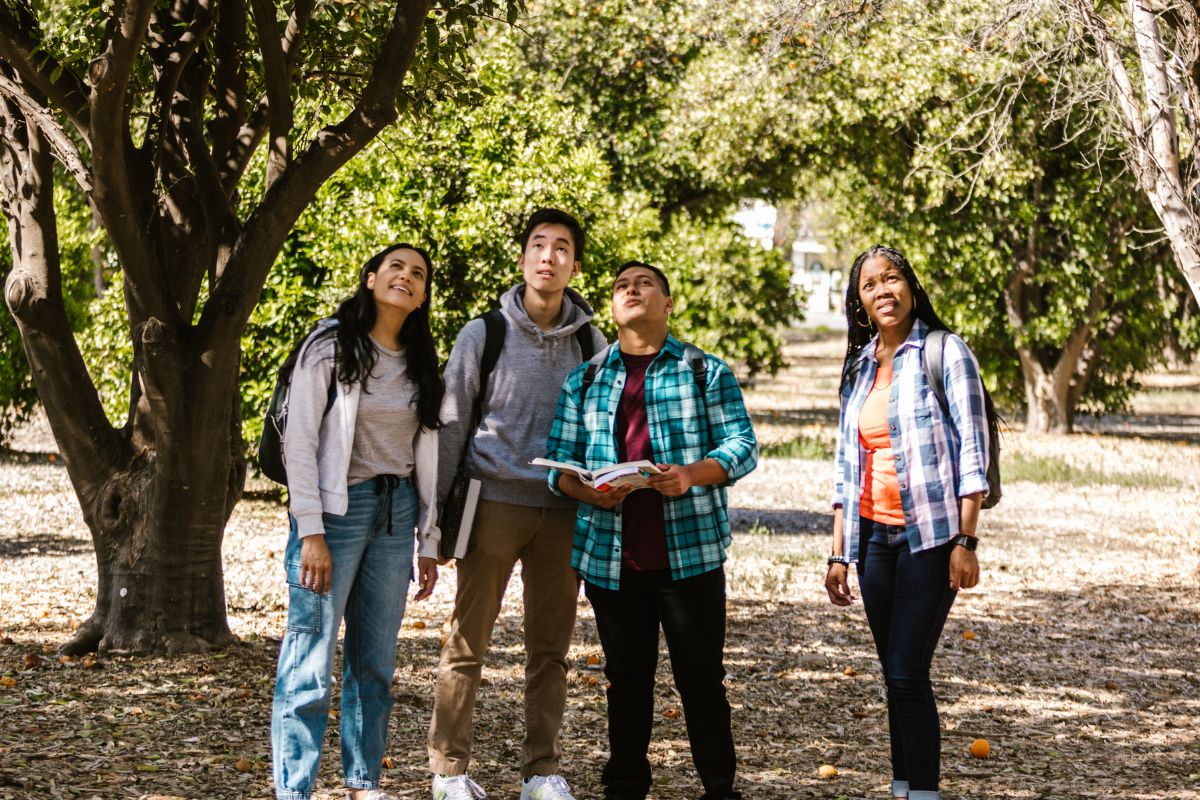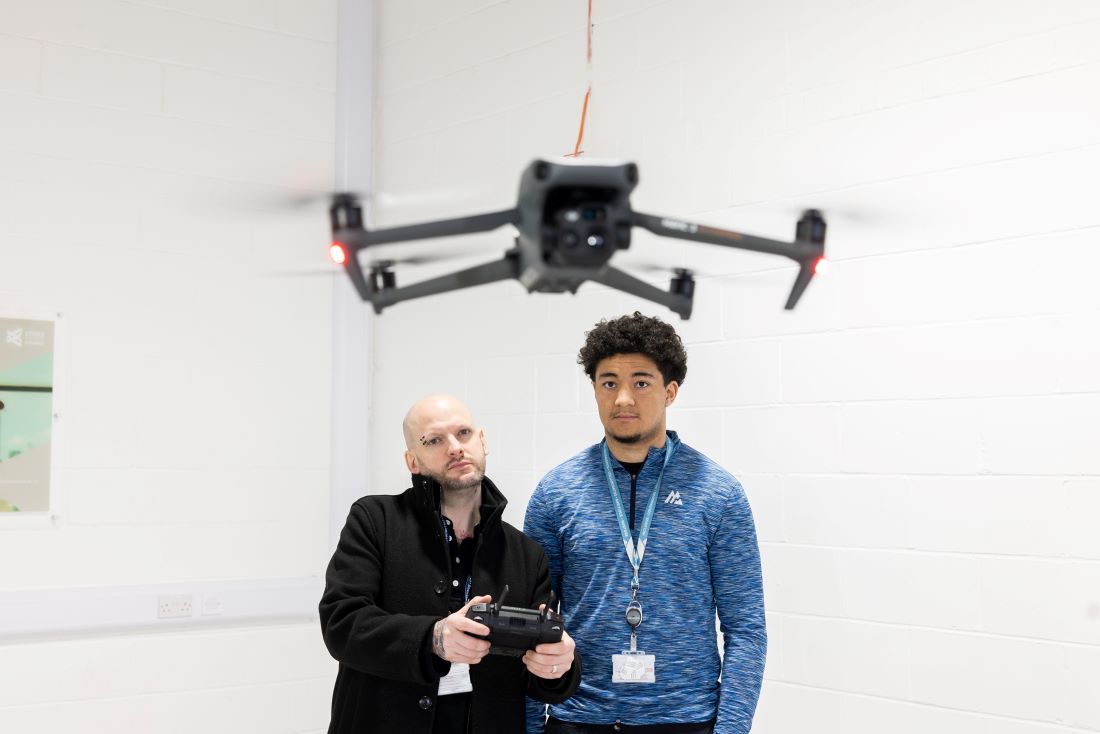36% rise in young people’s resilience through development of 21st Century Skills

As exam results approach, many 16-18 years old will be considering their futures, some with a clear vision of the direction they want to take, while many others grapple with the long-term effects of lockdown amidst Industry 5.0.
In a rapidly evolving world, it is crucial to provide young people with the skills to adapt and to have aspiration for the future. Following unprecedented school closures, growing educational inequality and a worsening mental health crisis, young people today are facing potential negative impact on long term life chances [1]. To put the rapid pace of change young people face into perspective, it is estimated that 65% of them will end up in jobs yet to be invented [2].
While the power of acquired knowledge is unquestionable, cultivating a young person’s sense of purpose and passion alongside traditional cognitive skill development creates more powerful learning experiences in tune with a digital world of constant change [3].
21st Century Skills and Resilience
Nurturing of new skills, known as the Four Cs of 21st Century Skills – Creativity, Collaboration, Communication and Critical Thinking – support young people in the development of psychological resilience and wellbeing.
Resilience and wellbeing are well used words in the context of young people, but how is it measured and how can better resilience prepare young people for the future? A new research project has revealed a 36% increase in resilience and 23 % in wellbeing following the evaluation of a structured programme of Outdoor Adventure Education programmes (OAE).
During February and March 2023, the programme of free to access OAE residentials were offered to 16-17 years olds via the National Citizen Service, targeted towards young people who may be experiencing challenges to their mental health and well-being while adjusting to the rigours of a post-covid climate. The innovative Skills4life programme of adventure and vocational skills activities aimed to hone the four Cs of 21st Century Skills to support the development of positive adaptive behaviours of young people to combat stress, bounce-back from adversity and to follow a trajectory of growth (bounce-beyond ability).
The programmes were delivered by evidence-based outdoor learning company Inspiring Learning at its residentials provider brand Kingswood, which partnered with Sheffield Hallam University to evaluate transformation and outcomes based on 1,000 participants across 10 Kingswood Residential Centres.
Evaluation
A mixed methods evaluation of the Skills4Life programme contained baseline (pre-programme), post-programme, and one month follow-up measures. A combination of quantitative measures (psychometric questionnaires, bespoke scales) and qualitative data capture (group leaders and participants testimonies) evaluated the impact of the programme upon the participants’ perceived resilience, well-being, and acquisition of the four C’s of 21st Century Skills.
The Connor–Davidson Resilience scale [4] was used to measure young people’s psychological resilience. This scale is suitable for use with older adolescents in educational contexts [5] and within OAE residential interventions (e.g., 6].
Psychological well-being was evaluated using the Shortened Warwick–Edinburgh Mental Wellbeing Scale (SWEMWBS). The SWEMWBS uses seven of the WEMWBS’s 14 statements about thoughts and feelings, which relate more to functioning. The seven statements are positively worded with five response categories from ‘none of the time’ to ‘all of the time’. Scores range from 7 to 35 and higher scores indicate higher positive mental wellbeing.
Prior to the start of the programme, participants were requested to select from a list of statements what they expected to gain from Skills4Life. This included personal, social, and vocational skill sets associated with the 4 C’s. Across ten of the eleven areas, expectations were exceeded. Multiple stepwise linear regressions revealed the more participants were inspired by the countryside, solved their own problems, were free to make choices and learn new skills, the more likely they were to build resilience and psychological well-being.
While resilience does not ensure positive mental health (e.g., 7, 8], resilient behaviours akin to Skills4Life help individuals to solve problems, deal with setbacks, manage work conscientiously, communicate with people from a variety of backgrounds, and adapt rapidly to changing conditions.
Outdoor Learning
The immersion of young people into outdoor natural settings have been shown to result in positive psychological outcomes and mental health-related benefits akin to resilience and wider skill development [9, 10, 11 ,12]. A review of 150 studies on outdoor learning in the UK [13], five meta-analyses of previous research [14,15,16,17,18], a five year study making the case for outdoor residential learning, Learning Away [19] and England’s largest outdoor learning project The National Connections Demonstration Project, [20] conclude that, although there is variability in programme design and extent of outcome, OAE impacts positively on young people’s capabilities which are relevant for their Skills4Life
In a post-covid climate of uncertainty and mental health concerns, results indicated that the participants reported lower resilience and psychological well-being on entry to the programme than population norms of similar young people. From this low baseline, participants significantly increased their resilience and psychological well-being, by 36% and 23% respectively on completion of the programme.
Furthermore, one month follow-up data (below) highlighted that the resilience and psychological wellbeing achieved in the programme was retained above initial baseline levels:
- 80% of participants thought about their residential experiences at least 2 to 3 times or more often
- 70% were more confident about their education or prospects about getting a job
- over three quarters of learners saw more opportunities than they realised following Skills4Life
- 4 in every five students reported being more confident in meeting new people and feeling more positive towards people from different backgrounds’
- over 70% felt more capable to cope with whatever life was now to throw at them.
Positive correlations between resilience and psychological at each timepoint validated the use of the psychometric tests used across the programmes.
Recommendations
Multiple recommendations have been identified on analysis of the research results by Dr John Allan, Visiting Fellow at Sheffield Hallam University, who is also Head of Learning and Impact at Inspiring Learning. Continuous utilisation and refinement of the Skills4Life programme for meaningful data capture, and continued research collaborations with the National Citizen Service are highlighted as key to addressing gaps in understanding and protecting young people from societal risk factors, and to providing a range of enduring skills needed to become successful and resourceful adults.
Amongst several other recommendations, Dr John Allan emphasises a need for the extension of provision of residential programmes across a wider demographic intake of young people to increase access to outdoor activities and spaces, and he highlights the benefits of building such provision into key school transitional periods for younger age groups, whilst also provided bespoke and refined OAE for specific populations such as ‘ghost children’ and the Forgotten Middle (Year 8 & 9).
References
- House of Commons, Is the Catch-up Programme fit for purpose? Fourth Report of Session 2021–22, House of Commons Education Committee, 2022.
- Jana, L. Toddler Brain: Nuture the Skills Today that will Shape your Child’s Tomorrow, DeCapo Lifelong, 2017.
- Trilling, B & Fadel, C. 21st century skills: Learning for life in our times. John Wiley & Sons, 2009.
- Connor, K. M., & Davidson, J. Development of a new resilience scale: The Connor-Davidson Resilience Scale (CD-RISC). Depression and Anxiety, 18(4) pp.76-82. 2003.
- Singh, K., & Yu, X. Psychometric evaluation of the Connor-Davidson Resilience Scale (CD-RISC) in a sample of Indian students. Journal of Psychology, 1, pp. 23-30. 2010.
- Allan J.F., & McKenna J. Trajectories of Resilience in University Inductees Following Outdoor Adventure (OA) Residential Programmes. Psychiatry International, 3(1):67-90. https://doi.org/10.3390/psychiatryint3010007. 2022.
- Norris, F., Stevens, S., Pfefferbaum, B., Wyce, K., & Pfefferbaum, R. Community resilience as a metaphor, theory set of capacities, and strategy for disaster readiness. American Journal of Community Psychology, 41, pp.127-150. 2009
- Layne, C. M., Warren, J. S., Watson, P. J., & Shalev, A. Y. Risk, Vulnerability,resistance, and resilience: Toward an integrative conceptualisation of posttraumatic adaptation. In T.K.M Friedman & P. Resnick (Eds) Handbook of PTSD: Science and Practice (pp. 497-520), New York, NY: Guildford Press. 2007.
- Ungar, M., Dumond, C., & McDonald, W. Risk, resilience and Outdoor programmes for at-risk children. Journal of Social Work. 5(3), pp.319-338. 2005.
- Plante, T., Lackey, K. & Hwang, J.The Impact of Immersion Trips on Development of Compassion Among College Students. Journal of Experiential Education, 32(1), pp.28-43. 2009.
- Barton J., & Pretty, J. What is the Best Dose of Nature and Green Exercise for Improving Mental Health? A Multi-Study Analysis. Environmental Science and Technology, 44(10), pp.3947-3955. 2010.
- Van den Bosch, M., & Sang, Å. O. Urban natural environments as nature-based solutions for improved public health–A systematic review of reviews. Environmental research, 158, 373-384. 2017.
- Rickinson, M., Dillion, J., Teamey, K., Morris, M., Mee Young C., Sanders, D., & Benefield, P. Review of Research on Outdoor Learning. London: National Foundation for Educational Research and Kings College.2004.
- Cason, D.; Gillis, H.L. A meta-analysis of Outdoor Adventure programming with Adolescents. J. Exp. Educ. 1994, 17, 40–47.1994.
- Hattie, J.; March, H.; Neill, J.; Richards, G. Adventure education and Outward Bound; Out of class experiences that make a difference. Rev. Educ. Res. 1997, 67, 43–87. 1997.
- Neill, J.T.; Richards, G.E. Does outdoor education really work? A summary of recent meta-analyses. Aust. J. Outdoor Educ. 1998, 3,2–9. 1998.
- Bowen, D.; Neill, J. A Meta-Analysis of Adventure Therapy Outcomes and Moderators. Open Psychol. J. 2013, 6, 28–53. 2013.
- McMahan, E.; Estes, D. The effect of contact with natural environments on positive and negative affect: A meta-analysis. J. Posit.Psychol. 2015, 10, 507–519.2015.
- Kendall, S., & Rodger, J. Learning Away, Paul Hamlyn Foundation.2015.
- Natural England The National Connections Demonstration Project, 2012-2016 Final Report (NECR215), Natural England. 2016.











Responses